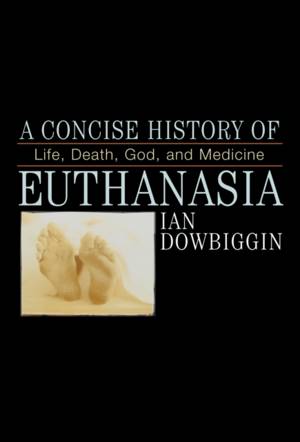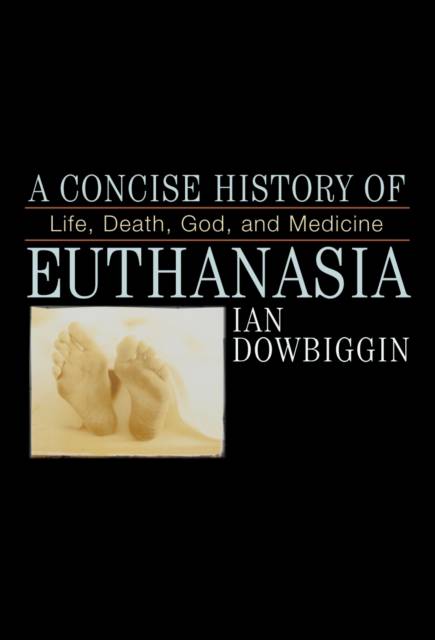
Door een staking bij bpost kan je online bestelling op dit moment iets langer onderweg zijn dan voorzien. Dringend iets nodig? Onze winkels ontvangen jou met open armen!
- Afhalen na 1 uur in een winkel met voorraad
- Gratis thuislevering in België vanaf € 30
- Ruim aanbod met 7 miljoen producten
Door een staking bij bpost kan je online bestelling op dit moment iets langer onderweg zijn dan voorzien. Dringend iets nodig? Onze winkels ontvangen jou met open armen!
- Afhalen na 1 uur in een winkel met voorraad
- Gratis thuislevering in België vanaf € 30
- Ruim aanbod met 7 miljoen producten
Zoeken
Omschrijving
This deeply informed history traces the controversial record of "mercy-killing," a source of heated debate among doctors and laypeople alike. Dowbiggin examines evolving opinions about what constitutes a good death, taking into account the societal and religious values placed on sin, suffering, resignation, judgment, penance, and redemption. He also examines the bitter struggle between those who stress a right to compassionate and effective end-of-life care and those who define human life in terms of either biological criteria, utilitarian standards, a faith in science, humane medical treatment, the principle of personal autonomy, or individual human rights. Considering both the influence of technological and behavioral changes in the practice of medicine and the public's surprising lack of awareness of death's many clinical and biological dimensions, this book raises profound personal and collective questions on the future of euthanasia.
Specificaties
Betrokkenen
- Auteur(s):
- Uitgeverij:
Inhoud
- Aantal bladzijden:
- 172
- Taal:
- Engels
- Reeks:
Eigenschappen
- Productcode (EAN):
- 9780742531116
- Verschijningsdatum:
- 26/03/2007
- Uitvoering:
- Paperback
- Formaat:
- Trade paperback (VS)
- Afmetingen:
- 148 mm x 222 mm
- Gewicht:
- 249 g

Alleen bij Standaard Boekhandel
+ 80 punten op je klantenkaart van Standaard Boekhandel
Beoordelingen
We publiceren alleen reviews die voldoen aan de voorwaarden voor reviews. Bekijk onze voorwaarden voor reviews.











